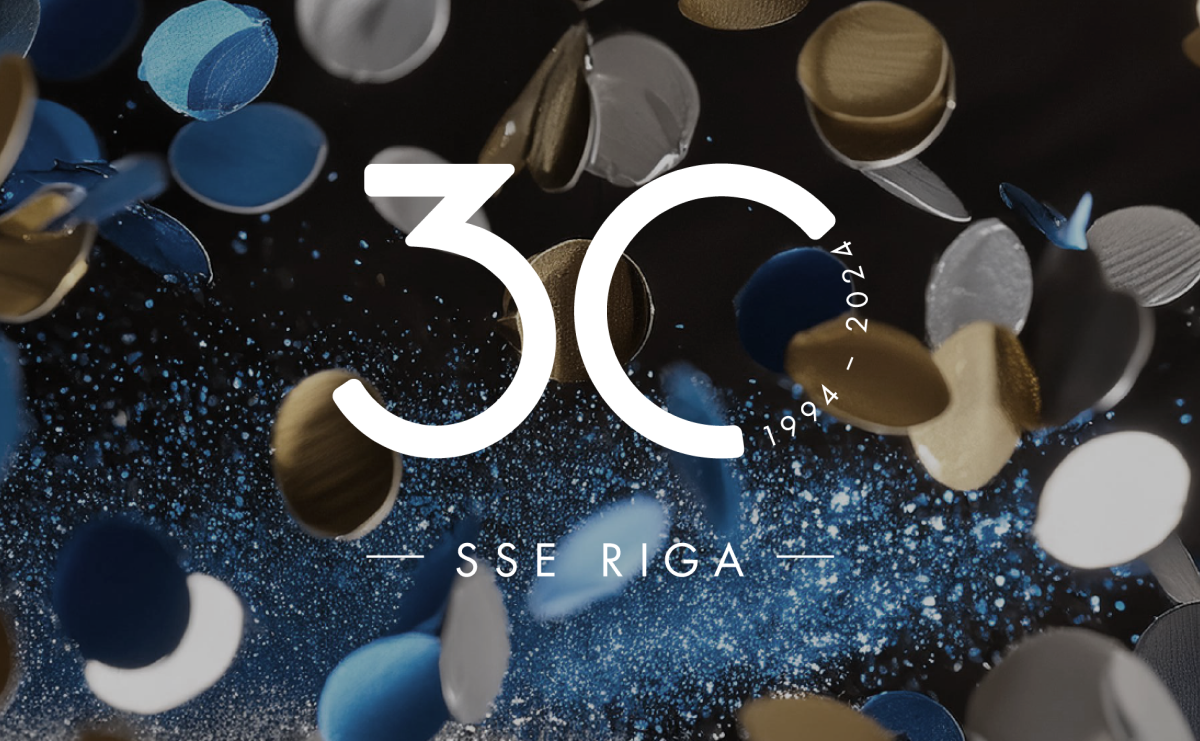#SSERiga30: From being a student to becoming a lecturer
This November, SSE Riga is celebrating 30 fantastic years! It’s amazing to see how our traditions and spirit have been passed down through the generations. As we look back on three decades, it’s clear that the heart of SSE Riga lives on in every student, graduate, and faculty member.
At SSE Riga, we’re especially proud of the lecturers who once sat in our classrooms as students. Our traditions and high standards carried forward by those who’ve walked the same path. Below, former students now turned lecturers share their thoughts on SSE Riga, reflecting on their journey from student to lecturer.
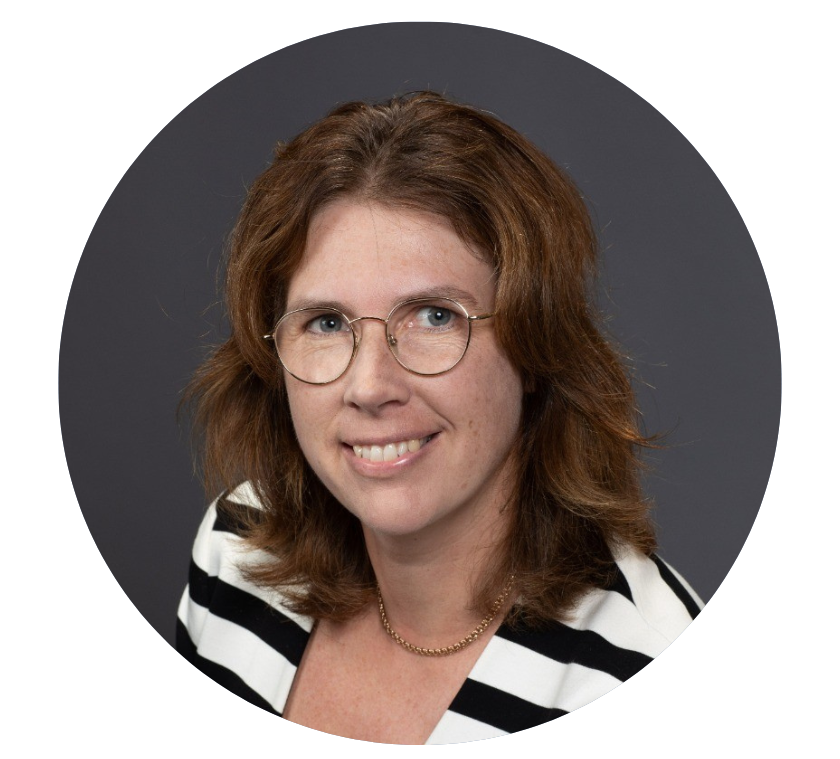
Anete Pajuste (Class of 1997)
During my career at SSE Riga, I have taught various finance and accounting-related courses for undergraduate and EMBA students, such as Business Valuation, Financial Economics, Management Accounting and Finance, and Finance Specialization. Before joining academia, I worked in asset management. My academic career began with different teaching assistant positions at SSE Riga, and I owe much to a former SSE Riga prorector, Māris Slokenbergs, who noticed my passion for teaching and finance and encouraged me to complete a PhD in Finance.
Having experienced SSE Riga from both sides—as a student and a faculty member—I deeply appreciate and cherish the tight-knit community where learning extends beyond textbooks and exams.
Although some things have changed over time, the “study hard, party hard” mindset persists, fostering a culture that is as rewarding as it is enriching.
The SSE Riga experience is centered around personal development, alongside peers and colleagues who often become lifelong friends.
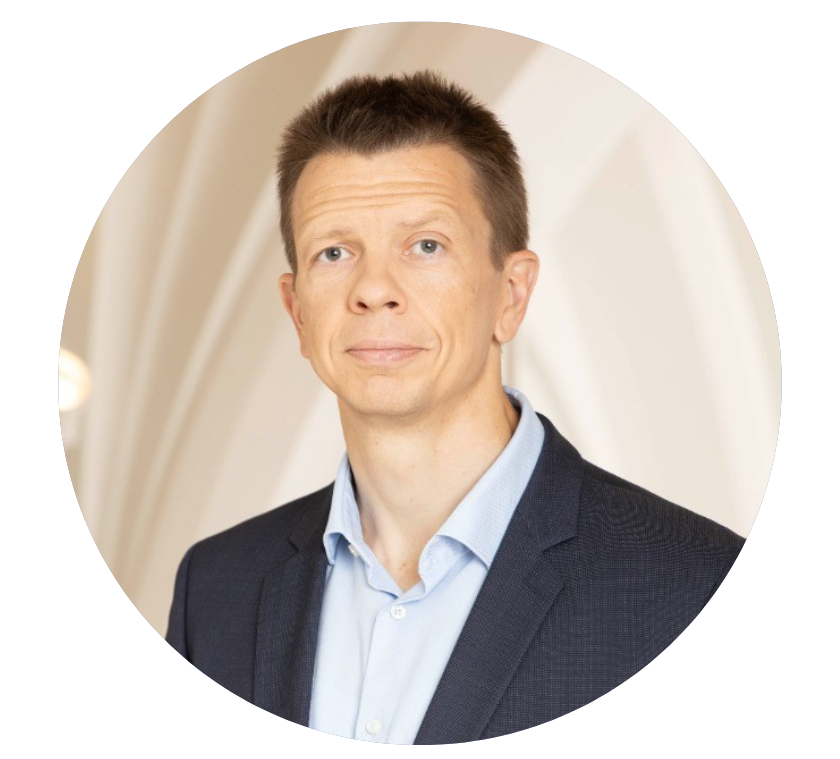
Andris Strazds (Class of 1998)
I've been teaching Managerial Economics for more than 20 years. The course is a unique mix of financial accounting, applied microeconomics, and basic concepts in business strategy. It focuses on the practical applications of economic thinking.
My journey to teaching at SSE Riga was quite straightforward. After completing my studies, I won a scholarship for the master's degree programme at SSE in Stockholm. One clause in the scholarship agreement required me to contribute to SSE Riga for at least three years after finishing my master's studies. And the rest is history, so to speak.
I have noticed one positive and one less positive change in today’s students compared to students from my generation.
The positive aspect is that today's students are much more at ease with public speaking, presenting themselves, and presenting their work. The less positive aspect is that attention spans have shortened significantly. Sometimes it seems that lectures might need to be shortened to two 15-minute segments instead of the current 2 × 45 minutes to maintain their attention.
However, the 10,000-hour rule still applies—there are no shortcuts to mastering a field, whether it's business and finance, mechatronics, or medicine. So, log out of your social media accounts and messenger apps, and try to extract the maximum value from your studies!

Nataļja Točelovska (Class of 2003)
I teach Financial Accounting and Managerial Economics. I am pleased to see how motivated and driven SSE Riga students are. Comparing the current Year 1 students to my own class of 2003, I don’t notice a huge difference in motivation and dedication to the study process.
However, I do feel that students now have more opportunities and choices available to them. It’s encouraging to see that students are actively exploring different professional areas and are honest with themselves about their interests.
I returned to SSE Riga in 2011 as a co-lecturer for the Managerial Economics course. It was partly a coincidence, as I was approached by the Administration, and partly because by that time, I was actively lecturing at other universities. At that time, lecturing was more of a hobby since my main job was in banking.
Teaching at SSE Riga has profoundly changed my life. It was during this time that I decided to pursue a PhD in Economics. I left the banking sector to focus fully on academia and entrepreneurial activities.

Mārtiņš Mellēns (Class of 2005)
I am a lecturer in the course “Introduction to Private Equity and Venture Capital.” This course focuses on investing in private markets, where students learn about the macro context of private market investing, develop core skills needed by an investor, learn from industry professionals, and apply their knowledge practically in underwriting an investment case from start to finish. I have been involved in private markets investing globally for over 15 years, and it feels natural to give back to the community I deeply care about.
My experience as a lecturer is quite different from my experience as a student. As a student, I was very social and drew energy from people. I got to know almost everyone at the school, was involved in sports, culture, and daily activities, and had a strong sense of belonging. As a lecturer, while I feel a deep sense of gratitude for the opportunity to give back, it can feel lonely. I have a busy day job and travel to teach each week, which leaves little chance for socializing.
I see the younger generation of students as different from those 20 years ago—they appear more international and ambitious from the start, thanks to changes in access and the educational system. They seem to have a clearer idea of what they want to do and how to achieve it.
On the other hand, fundamental skills seem a bit less evident, and students are less engaged in social and sports activities. However, it is great to see that more students are interested in entrepreneurial activities.
My return as a lecturer was somewhat coincidental. After living abroad for over 15 years, I wanted to move my family back post-COVID and explore opening a McKinsey & Company office in the Baltics. The macro and geopolitical context was not favorable, but during this process, I met Anders, who invited me to chat. In that discussion, I mentioned that I had been thinking about giving back to the communities I care about, and he simply said, “You are in the right place. You have experience and perspective we would love our students to learn from.”
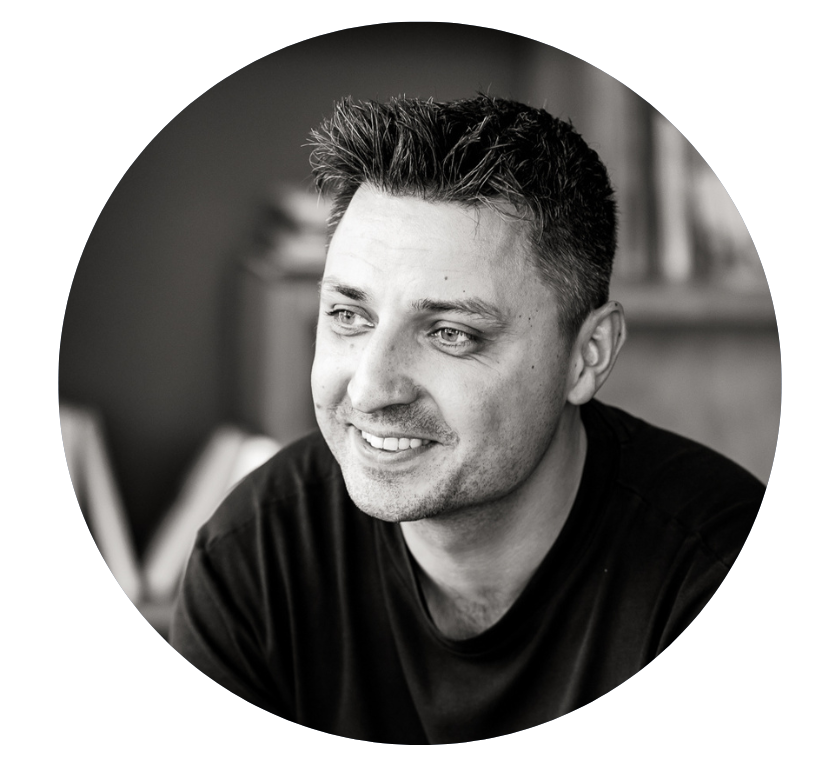
Marius Raugalas (Class of 2009)
I primarily teach the core Marketing course to Year 1 students every Spring. I also lead a few sessions on Marketing Analytics during the Market Research course in Year 2 and conduct Research Methods seminars for those who wish to write their Bachelor thesis on Marketing topics. Additionally, I supervise and grade some of the marketing-related thesis papers, allowing me to interact with students throughout their full academic journey.
I’m also fortunate to interact with multiple alumni each year through my Marketing real-life project, where students create ads for real local businesses and launch them with real money on Meta platforms. I started teaching Marketing at SSE Riga back in 2015, initially as a co-lecturer and then as the main lecturer and course director from the following year. It was my long-held dream to do this, and I remain very grateful to our former pro-rector, Diana Pauna, for the opportunity after I reached out to her about it.
Teaching at SSE Riga brings me immense joy—both because of how smart and motivated the students are and because I’ve been a student here myself. Every classroom and hallway is filled with memories, and creating new memories from the other side of the classroom is a very special feeling that I look forward to every year.
I don't think the students have changed much over the years. They still appear eager to learn and have fun. Nowadays, however, they seem more mindful of maintaining a study/work/life balance and are more self-aware of their mental health, which is a positive development.
On the other hand, they are somewhat more reserved about speaking up in front of their peers during lectures, which I believe is an important skill to develop.
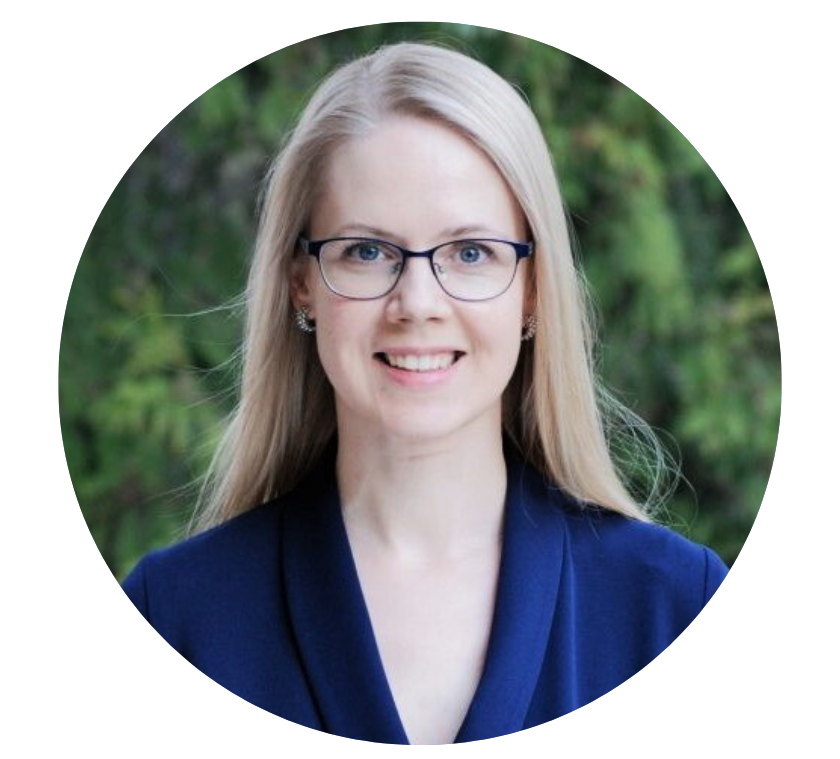
Heidi Reinson (Class of 2006)
I teach Economic & Consumer Behaviour for the BSc and Science of Human Behaviour for the EMBA class. Recently, I also started hosting the module on how to run experiments in the Market Research course.
I have been teaching for more than 10 years now, and initially, I felt like the wiser (not necessarily cooler!) older sister of the students. I genuinely understood them and their challenges—I had lived their experience. But then a few years ago, it was as if a switch had been flipped—suddenly, I felt like their mom! And no surprise, as the current students are closer in age to my kids than to me.
There is definitely a different vibe now—the Gen Z has their own special character; they grew up in a different world. But it is also about the new economic reality of the Baltics. I studied at SSE Riga 20 years ago, and with some exceptions, we were all poor. We looked to the West, in awe and with bold ambition. Today, the Baltics are average European countries (actually above average in many, many aspects!), and I can see it in the students.
They are less humble and have a different type of confidence. Though, of course, SSE Riga students have always been and always will be (over)confident—that hasn’t changed over time!
I am so grateful for the experience of teaching in Riga every spring and witnessing the growth and evolution of our community. Like many alumni, former Pro-Rector Diana Pauna’s trust in me started this little side career as a lecturer. And partly thanks to that, I have now moved into academia in my research projects too.

Edvīns Elferts (Class of 2012)
Last year, I taught a Business Intelligence elective course. This year, I am teaching the same BI elective, a Year 3 Artificial Intelligence course, and several executive education courses. I primarily teach technology-heavy subjects, which align with my background and interests. After SSE Riga, I taught mathematics at a school outside of Riga and have since conducted a lot of corporate training, which I enjoy. Over time, the experience and knowledge I accumulated sparked a desire to share it with others. When the opportunity to teach arose, I seized it as a chance to continue learning and help shape a new generation.
Regarding generational differences, younger generations are much more tech-savvy and accustomed to quick access to information. They are very comfortable with digital tools and tend to seek immediate solutions.
As a student, SSE Riga was a place where I gained strong knowledge and developed analytical skills that boosted my career. Now, as a lecturer, the experience is quite different—it’s about responsibility and the impact on future generations.

